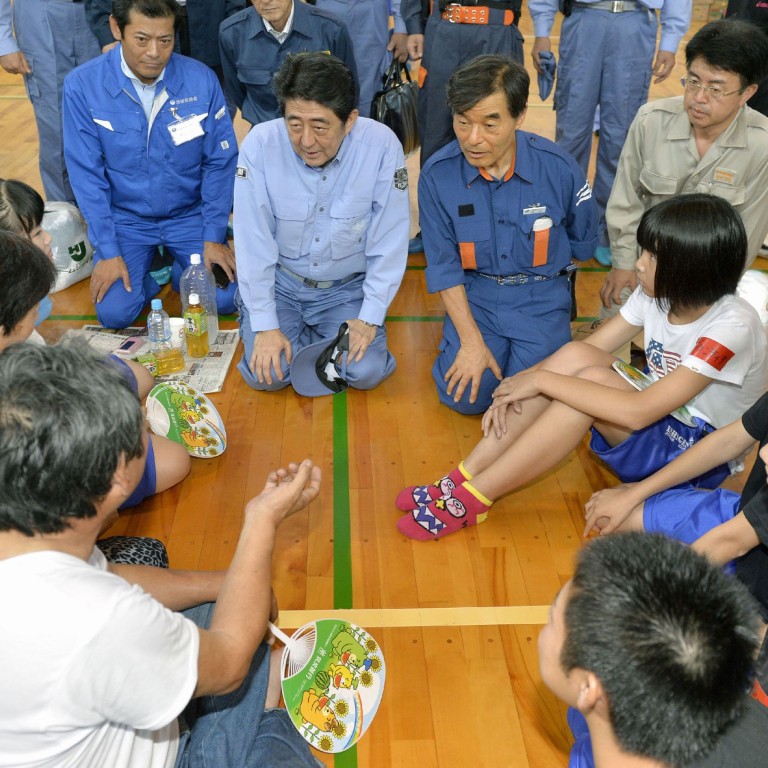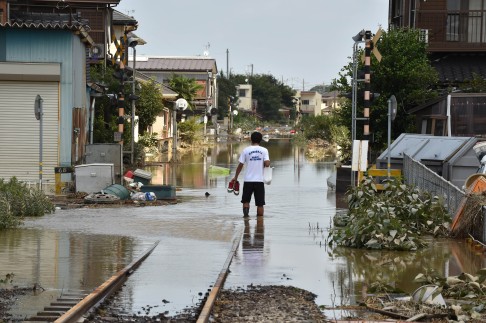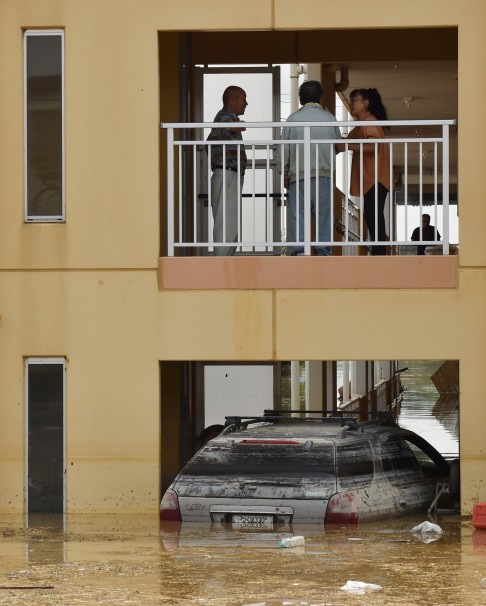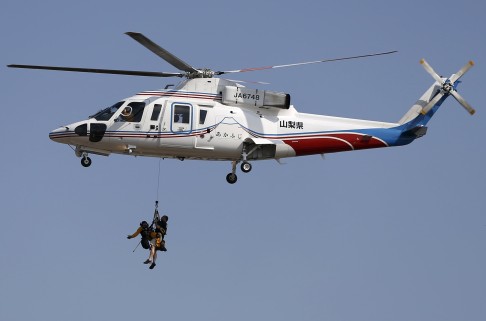
‘I felt more dead than alive’: Japan’s flood-hit residents plea for help as Abe meets evacuees
Japanese Prime Minister Shinzo Abe on Saturday visited a disaster-struck city north of Tokyo in the aftermath of massive flooding that killed at least three people, as rescuers raced against time to find more than a dozen still missing.
Dramatic aerial footage showed whole houses being swept away by raging torrents in scenes eerily reminiscent of the devastating tsunami that crushed Japan’s northeast coast four years ago.
“I felt more dead than alive,” said a man who was rescued on Saturday morning after days trapped inside his home.
“I lived by drinking tea as there was no food. I’m so glad that they came to rescue me,” he told public broadcaster NHK.

Akinori Nagaoka, 39, returned home with his son to find the first floor of the house flooded with muddy brown water.
“I have never seen anything like this before. I wonder when we can come back and live like it was,” he said.
As the water receded, police officers wearing life vests shoved poles into thick muddy ground to locate possible victims.

On Saturday morning, Abe visited the disaster-hit town, about 60km outside Tokyo, as some 2,000 troops, police and firefighters were deployed to rescue more than 100 people still trapped in water-logged buildings, the bulk of whom were patients and medical staff inside a flooded hospital, local media said.
“We’re doing our best to make things safe by reconstructing the broken (river) bank as quickly as possible to prevent a repeat of this disaster,” Abe said.
The Japanese leader reviewed the extensive damage from a military helicopter and met with evacuees at a shelter.
“We are working hard to rescue people trapped in buildings and find those who still are unaccounted for, while pumping out water,” a local government official said.
“But water levels are still high in many areas so that has hampered our operation.”
The number of missing in Joso declined from 22 to 15 after police found more victims alive, including a pair of eight-year-old children. It was not clear where the children were found, but some of those missing appeared to have been among those trapped in flooded buildings.
Another person was reported as missing in a northern prefecture.

In Kanuma city, north of Joso, a 63-year-old woman was killed in a landslide, while a 48-year-old woman was also found dead in Miyagi prefecture, officials said.
Police said the third victim was a 25-year-old man helping to clear clogged drains in the city of Nikko, which is known for its historic shrines.
Another river in Miyagi on Friday burst its banks and flooded a populated area but many residents had already been evacuated.

.png?itok=arIb17P0)